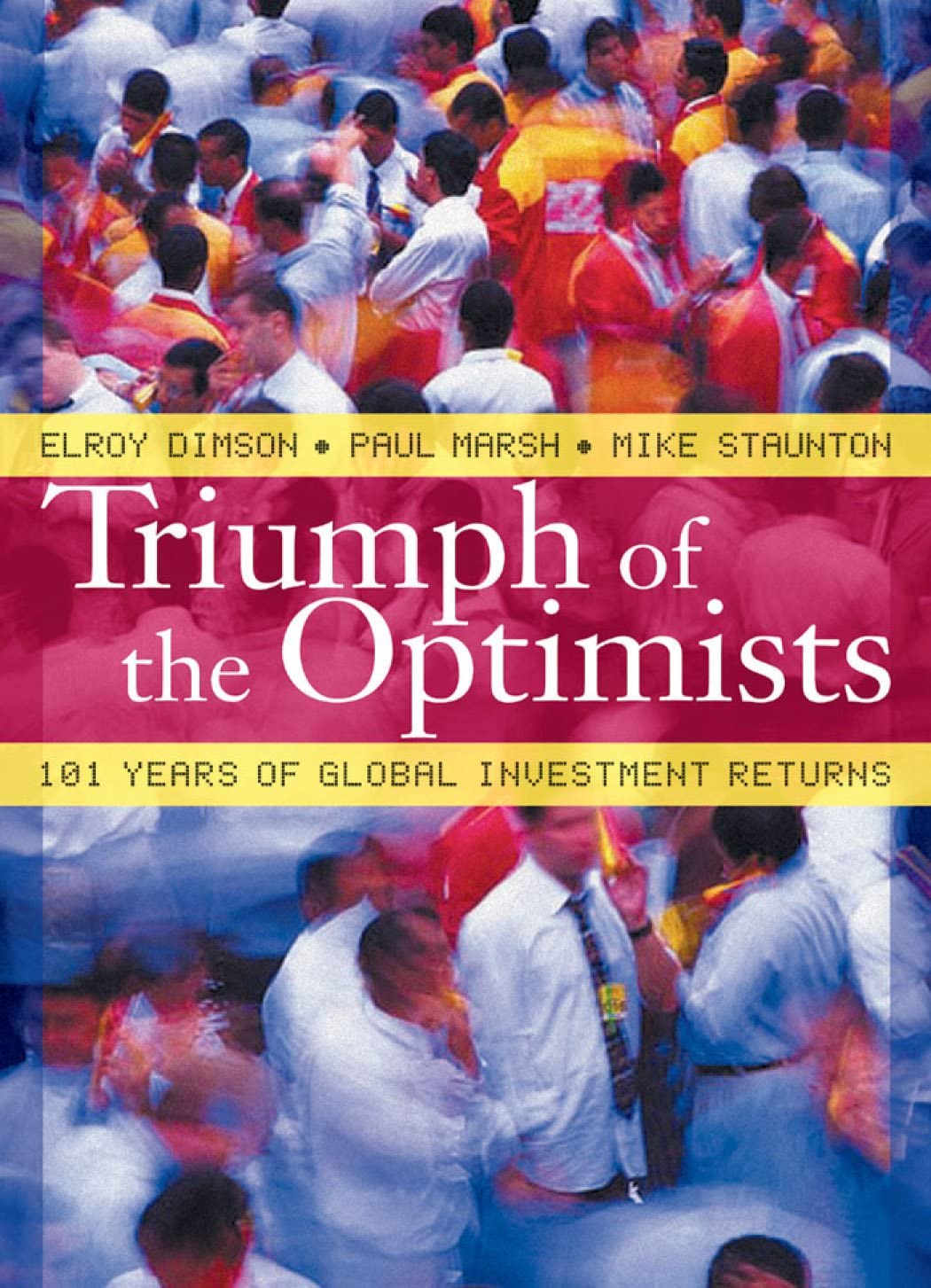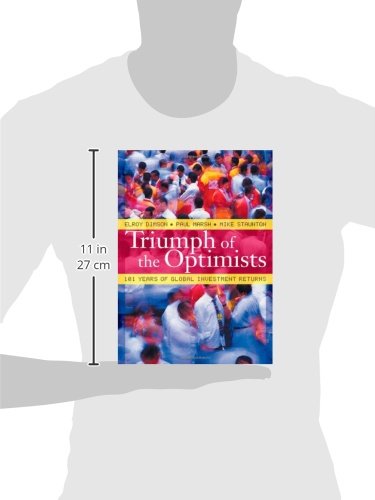


Triumph of the Optimists: 101 Years of Global Investment Returns
G**E
Priceless
This book, together with a good book on Warren Buffet basics, will provide the private stock market investor with the tools needed for extraordinary investment success. First, a book on Buffet basics will teach the investor how to identify exceptional businesses and how to value them correctly (by calculating the present value of the total cash that can be extracted from the business during its expected life). Next, Triumph of the Optimists will be of tremendous help in selecting the appropriate valuation variables, e.g. equity risk premium, discount rate, etc to be used. By incorporating the statistics provided in this book into your valuations, you will have 101 years of global investment history on your side. As a global investor for more than twenty years, I sometimes had to learn the hard way that "reversion to the mean" is a basic investment truth that dare not be ignored. This book will tell you what that "mean" is. Some may argue that this book is expensive, or that its statistics may be slightly distorted, but in real life this book's practical value makes it priceless.
M**N
Amazing Resource for Investors
Triumph of the Optimists is a valuable guide to international investing. 16 developed countries are analyzed and returns for stocks, bonds and bills (as well as inflation) are provided for over a century. This is an incredible collection of expert research for investment professionals with deep analysis and insights from Dimson, Marsh, and Staunton. There isn't the usual easy data mining in this textbook that simply repeats information you already know. The authors have compiled data from some very obscure sources for their calculations and their hard work pays off. Research of this quality isn't widely available for most investors so if you are serious about building a portfolio and understanding historical returns this text is essential. Some of the results challenge the information provided from popular sources such as Morningstar.Buy this book!
B**R
Triumph of the Investigators
"In writing this book," authors Dimson, Marsh, and Staunton conclude, "we set out to answer four big questions: How have stock markets performed over the twentieth century, domestically and internationally? How has this compared with bonds and bills? What has been the impact of foreign exchange fluctuations? And what toll has inflation taken?"In answering these questions, the authors have achieved perhaps the greatest triumph: assembling a 101 year database from 16 countries that is free from the "easy data" biases that result from utilizing readily available--but skewed--financial information.In the spirit of their title, the authors find that stocks worldwide provide real risk-adjusted returns above and beyond bills and bonds. Interestingly, their estimates of risk premia are more modest than those offered by traditional sources. They also provide intriguing support for seasonality effects and the favorable returns associated with high dividend yields, value investing, and worldwide diversification.Quite simply, I know of no other source of information on the "big picture" of investing that is as thorough or as lucidly outlined. This is a rare work of theoretical *and* practical significance.
D**L
Another Book Review by the Aleph Blog
Good investors are typically skeptical. They don't buy every idea that comes their way, but they test and probe to find ideas with compelling value that are misunderstood by others. That said, the best investors are prudent risk-takers. They continue to search for good investments even in environments that seem to have a negative investing climate.Skepticism can degenerate to permanent pessimism, particularly because most news coverage tends toward the negative. How does an investor remain bullish in the face of news flow that is predominantly negative? By looking at the broader tendencies of equity markets to flourish in the face of troubles over the long run. One good book for that is Triumph of the Optimists. [TOTO]TOTO points out a number of things that should bias investors toward risk-bearing in the equity markets:Over the period 1900-2000, equities beat bonds, which beat cash in returns. (Note: time weighted returns. If the study had been done with dollar-weighted returns, the order would be the same, but the differences would not be so big.)This was true regardless of what presently developed nation you looked at. (Note: survivor bias... what of all the developing markets that looked bigger in 1900, like Russia and India, that amounted to little?)Relative importance of industries shifts, but the aggregate market tended to do well regardless. (Note: some industries are manias when they are new)Returns were higher globally in the last quarter of the 20th century.Downdrafts can be severe. Consider the US 1939-1932, UK 1973-74, Germany 1945-48, or Japan 1944-47. Amazing what losing a war on your home soil can do, or, even a severe recession.Real cash returns tend to be positive but small.Long bonds returned more than short bonds, but with a lot more risk. High grade corporate bonds returned more on average, but again, with some severe downdrafts.Purchasing power parity seems to work for currencies in the long run. (Note: estimates of forward interest rates work in the short run, but they are noisy.)International diversification may give risk reduction. During times of global stress, such as wartime, it may not diversify much. Global markets are more correlated now than before, reducing diversification benefits.Small caps may or may not outperform large caps on average.Value tends to beat growth over the long run.Higher dividends tend to beat lower dividends.Forward-looking equity risk premia are lower than most estimates stemming from historical results. (Note: I agree, and the low returns of the 2000s so far in the US are a partial demonstration of that. My estimates are a little lower, even...)Stocks will beat bonds over the long run, but in the short run, having some bonds makes sense.Returns in the latter part of the 20th century were artificially high.The statistical chapters on the 16 developed markets are amazing, but now almost seven years dated. Still, you can glean a lot from them.This is an expensive book, and one that may not be for everyone. A cheaper book that covers many of the same issues is Stocks for the Long Run, by Jeremy Siegel. Now going into its fourth edition (I have a signed first edition), it covers many of the same issues, but with more of a US-centric approach, and going back another 100 years (with spotty data).As I like to say, stocks do well, absent war on your home soil, out-of-control socialism, and severe recession/depression. These books will help you stay in the market even when times are hard. After all, who can tell when the market will turn up? Or down?
M**S
Great book
I bought this for my Dad for Christmas, he said it was excellent
C**N
Excellent
Très utile, indémodable.Ce livre sur le trading long est une référence. Bien écrit, clair il permet de prendre du recul sur vos trades.
Trustpilot
2 weeks ago
4 days ago